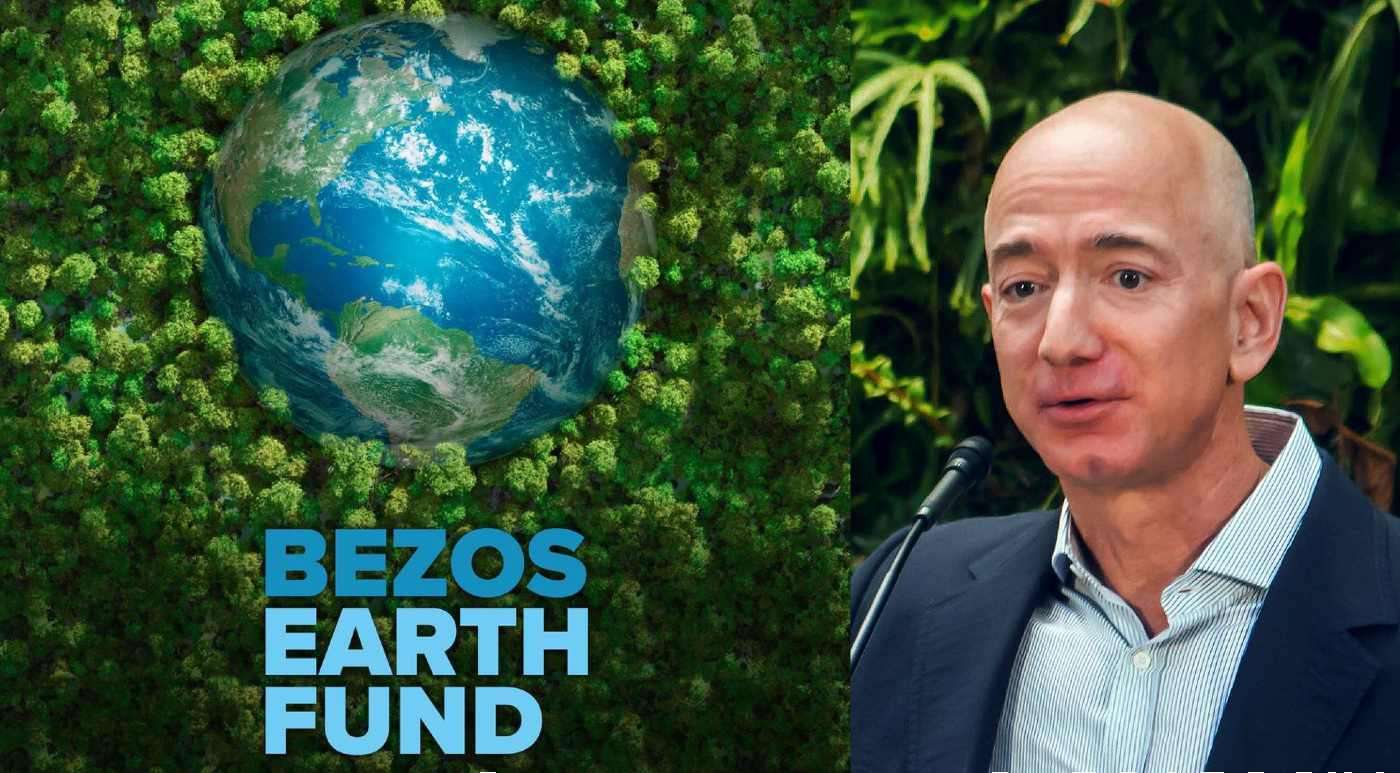World's First Ocean-Assisted Carbon Removal Plant Launched in Hawaii
Carbon capture from the oceans has major advantages over taking it out of the air, something that Hawai'i-based Heimdal is pioneering.

The Bezos Earth Fund, created by Amazon founder and CEO Jeff Bezos and worth $10 billion, has just distributed $791 million in grant money to large environmental organizations that focus on restoring forests and wildlife, and cutting carbon emissions.
The fund, which lacks a website, a board of directors, or even a grant application process, exploded into life on Monday with grants to the Nature Conservancy, Natural Resources Defense Council, World Wildlife Fund, World Resources Institute, and Environmental Defense Fund.
The Nature Conservancy announced their receipt for $100 million in Bezos bucks, saying that it would go to "protect the Emerald Edge forest in the United States and Canada," as well as "efforts to reduce the carbon footprint of farming practices in Northwest India and curtail agriculture's contribution to Delhi's air pollution."
"WWF is profoundly grateful for this transformational investment, and the impact this commitment will have on millions of people around the world," said a statement on World Wildlife Fund's website.
The WWF will take its grant and use it to restore mangrove forests, considered a natural climate change solution due to their enhanced ability to sequester carbon in their roots, and to investigate new markets for seaweed farming—an aquacultural activity that supports developing economies without deforestation.
The fund, which lacks a website, a board of directors, or even a grant application process, exploded into life on Monday with grants to the Nature Conservancy, Natural Resources Defense Council, World Wildlife Fund, World Resources Institute, and Environmental Defense Fund.
The Nature Conservancy announced their receipt for $100 million in Bezos bucks, saying that it would go to "protect the Emerald Edge forest in the United States and Canada," as well as "efforts to reduce the carbon footprint of farming practices in Northwest India and curtail agriculture's contribution to Delhi's air pollution."
"WWF is profoundly grateful for this transformational investment, and the impact this commitment will have on millions of people around the world," said a statement on World Wildlife Fund's website.
The WWF will take its grant and use it to restore mangrove forests, considered a natural climate change solution due to their enhanced ability to sequester carbon in their roots, and to investigate new markets for seaweed farming—an aquacultural activity that supports developing economies without deforestation.
"I've spent the past several months learning from a group of incredibly smart people who've made it their life's work to fight climate change and its impact on communities around the world," Bezos wrote in an Instagram post.
A post shared by Jeff Bezos (@jeffbezos)
A myriad of smaller organizations also received money, including the Salk Institute for Biological Studies, the Union of Concerned Scientists, the Rocky Mountain Institute, and more.
Many of these smaller grants were for carbon-reduction objectives, with the Union working on advocating for electric trucking, the Salk Institute for its plant project of genetically enlarging the carbon-capturing parts in the roots of common agricultural crops, and the Rocky Mountain Institute for a campaign to create carbon-free buildings.
The Bezos grants are likely an attempt to help reduce the carbon footprint of the world's largest retailer, which the founder hopes will be carbon neutral through a strategy of emission-cuts and carbon credits by 2040.
SHARE The News of This Announcement on Social Media…
Be the first to comment